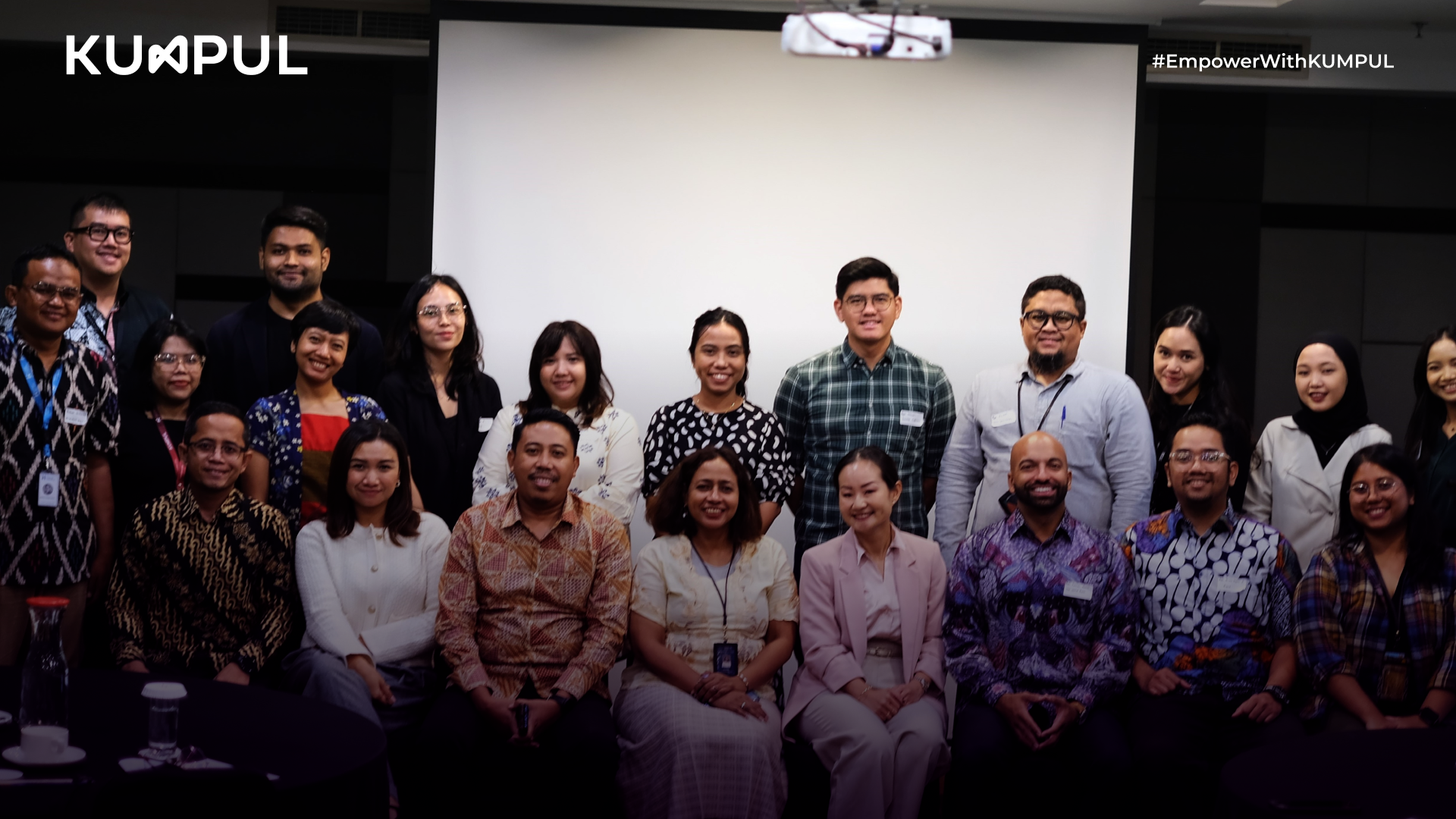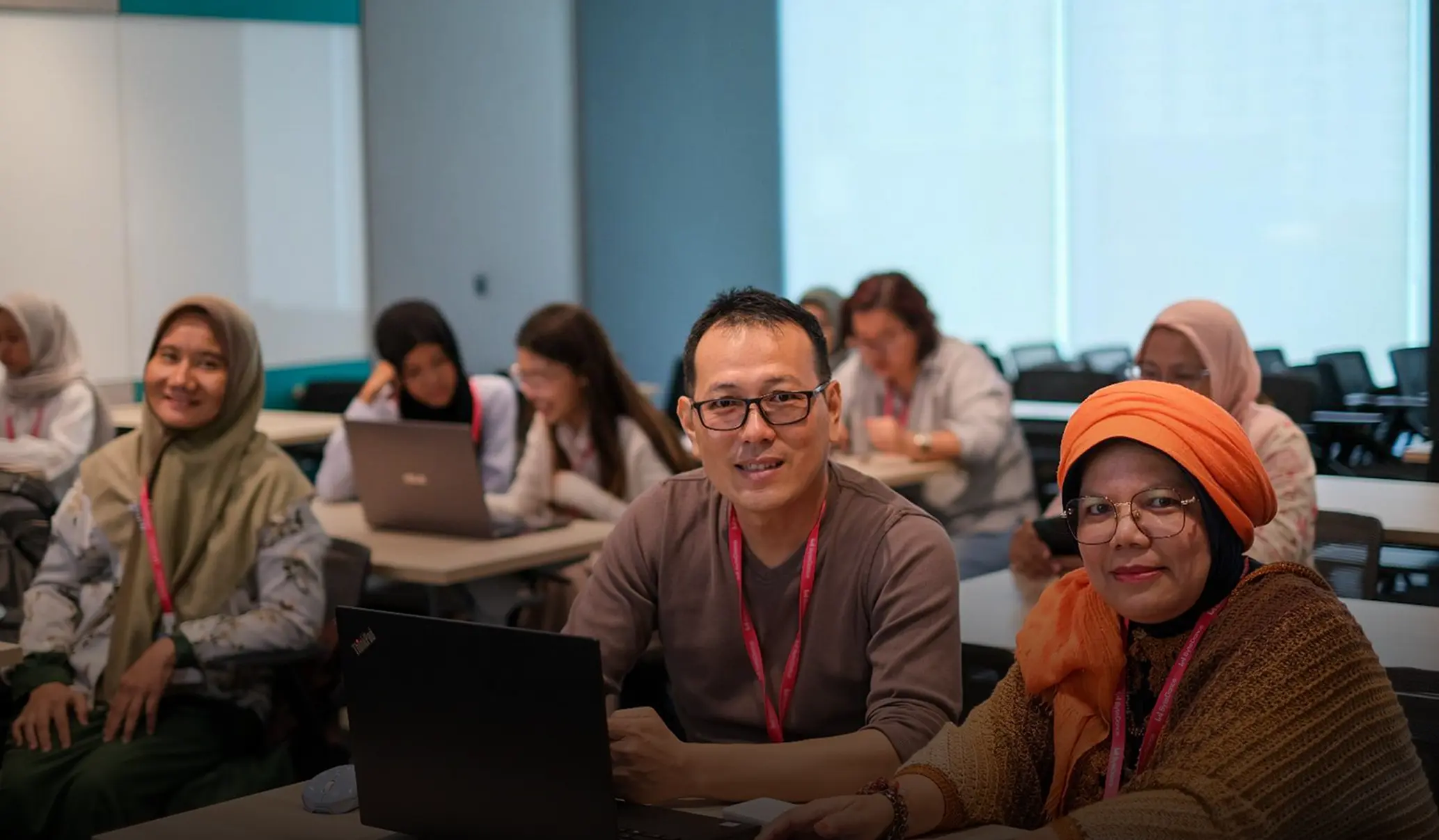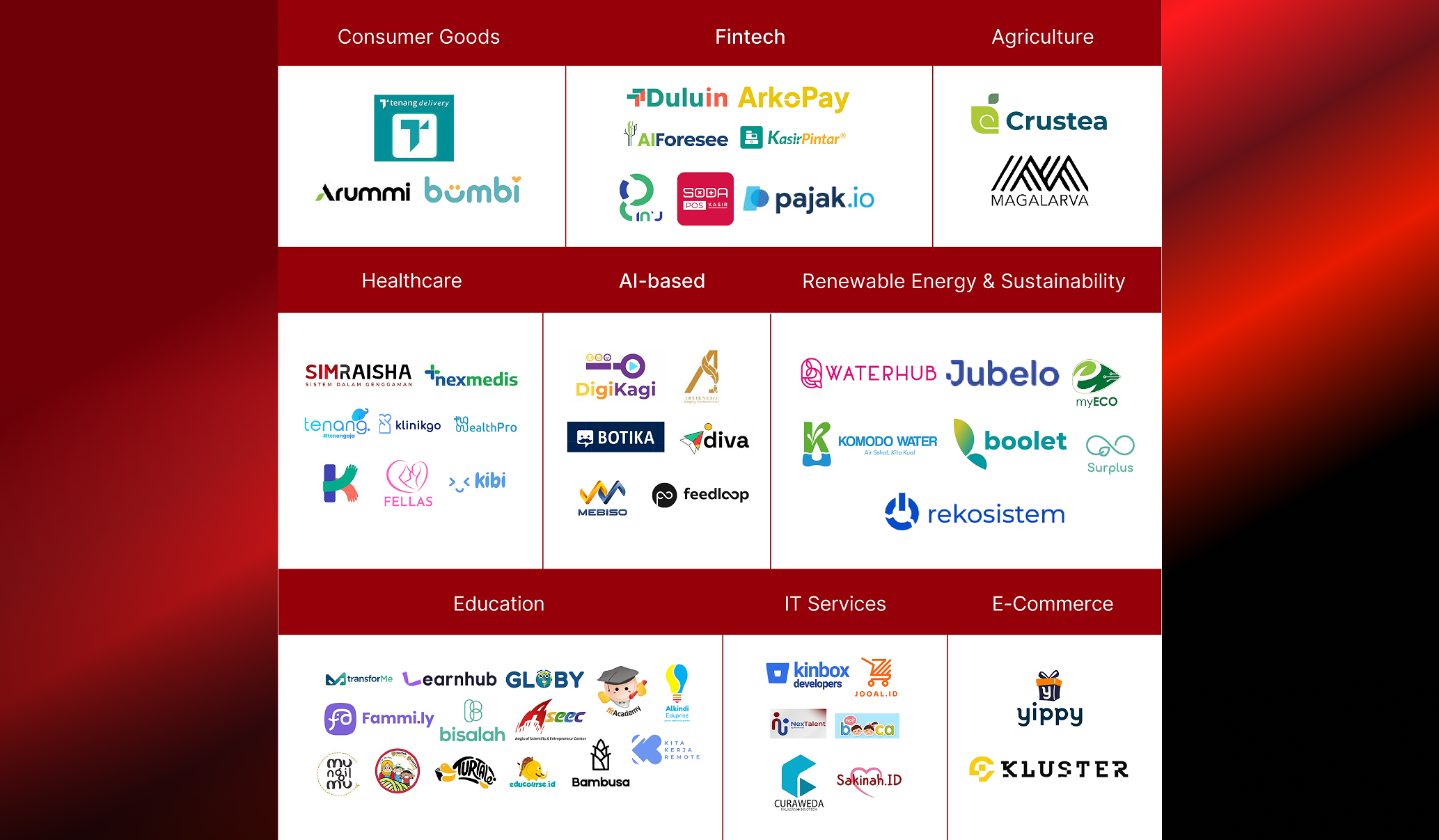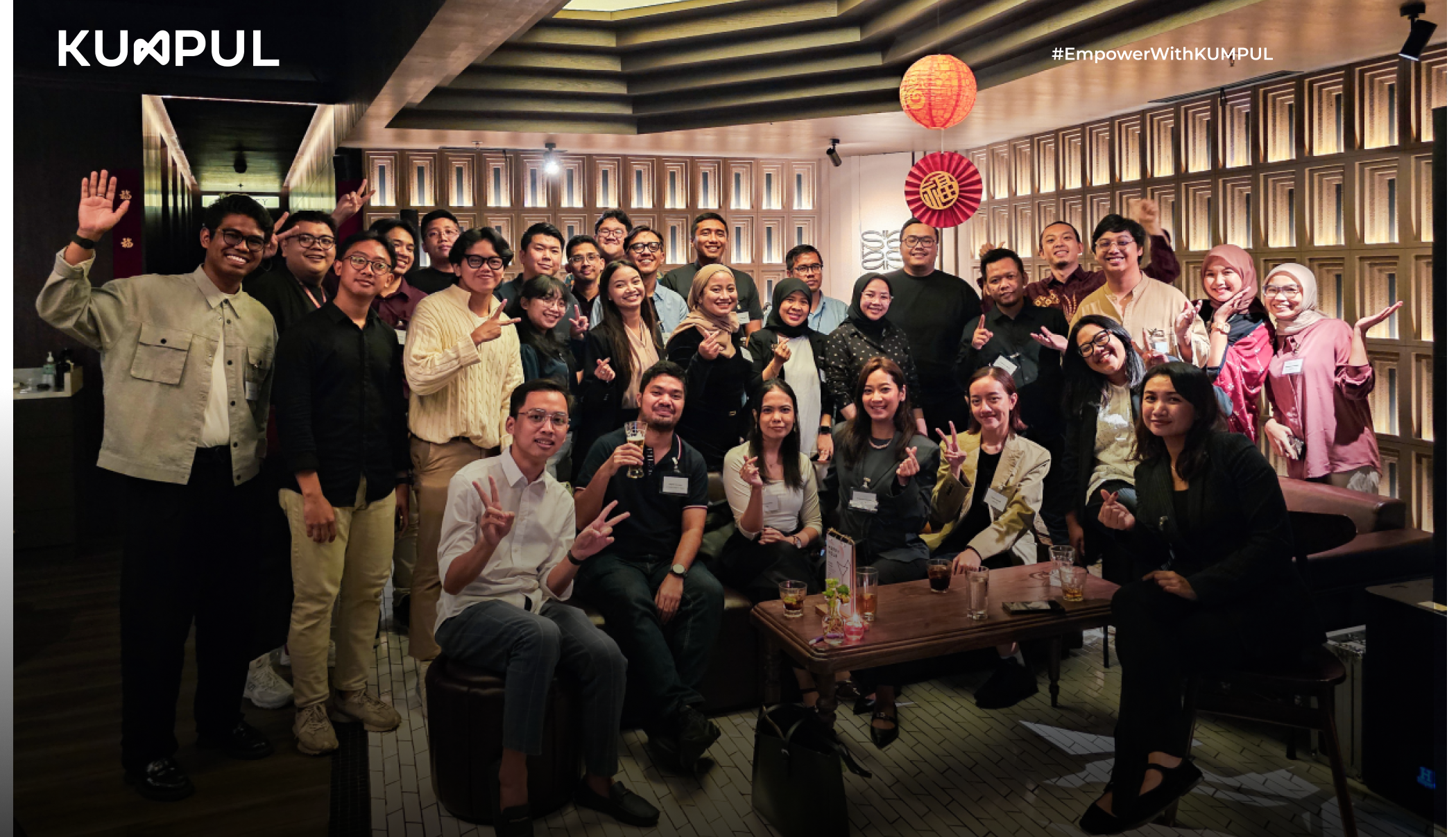Bridging Financial Inclusion, Market Access, MSME Growth, and Gender Equality in Entrepreneurship

KUMPUL hosted an in-person event titled the Executive Lab Forum 2024 in Central Jakarta, where influential stakeholders in Indonesia’s entrepreneurship ecosystem gathered to address pressing issues in the country’s economic landscape. The forum’s central theme, “Collaboration for Empowering Innovation & Global Reach,” was discussed in the context of three main challenges facing Indonesian entrepreneurs: limited market access and MSME growth, financial inclusion and access to capital, and gender inequality in entrepreneurship.
This event was framed within the World Café discussion format, a method that fosters dynamic and collaborative conversations among participants. The executives in attendance came from diverse sectors, including government ministries, private companies, and non-profit organizations. The event was facilitated by KUMPUL’s program team and featured notable speakers from KUMPUL Impact Partners. These included Hanifah Makarim (Director of Business Standardization and Certification, Ministry of Tourism and Creative Economy – Kemenparekraf), Rudy Franto Manik (Chief Human Resources & Marketing, FWD Insurance), Fuddy Heruzady (Synergy & Innovation, BNI Ventures), and Lalu Nofa Setiawan Putra (Senior Specialist of Economic Empowerment, AMMAN MINERAL).
KUMPUL’s Chairperson, Faye Wongso, opened the event by addressing some of the most pressing challenges entrepreneurs face today. Among these challenges, she highlighted the higher bankruptcy risk for female-owned businesses, despite gender parity in the population. She also pointed out the limited R&D funding in Indonesia, which stands at just 0.28% of the country’s GDP—an obstacle to technology-driven innovation. Adding to these concerns were logistical challenges stemming from Indonesia’s geographical structure as an archipelago, which further complicates the growth of MSMEs in many regions.
Sarita Anggun Kinanti, Associate Director of KUMPUL Impact, presented a summary of the key takeaways from the forum, with the following highlights:
Market Access and Growth Limitations
One of the most significant barriers to MSME growth in Indonesia is the limited market access. Many MSMEs are stuck in a cycle where they are treated solely as producers, often handling every step of the production process themselves. This lack of specialization limits their growth potential, particularly when compounded by financial and human resource constraints. As a result, many MSMEs face challenges such as market saturation and fierce price competition. The forum emphasized the need for MSMEs to move beyond being general producers and instead focus on specific roles within the supply chain. By doing so, they can contribute to a stronger, more integrated circular economy.
Startups can play a critical role in this transformation by acting as bridges between MSMEs and consumers, validating product quality, and ensuring consistent standards across the market. Additionally, various regions in Indonesia have significant untapped potential in their local commodities, but this potential remains underutilized due to limited market access and inefficiencies within MSMEs.
A session on Market Access and Growth Limitations identified several barriers faced by both MSMEs and startups, including lack of consumer awareness, complex regulatory frameworks, and geographic obstacles. Many MSMEs also struggle with business knowledge, which hinders their ability to navigate these challenges effectively.
Hanifah Makarim, Director of Business Standardization and Certification at Kemenparekraf, suggested that Blue, Green, and Circular Economy (BGCE) approaches could help tackle these issues. The Blue Economy emphasizes marine conservation and sustainability, the Green Economy focuses on economic and social sustainability, while the Circular Economy advocates for sustainable production and consumption cycles. Implementing BGCE strategies requires a comprehensive commitment from the government and the private sector, along with the necessary infrastructure, human resources, and investment policies.
Another proposed solution for improving MSME market access came from Salman Alibhai of the World Bank, who introduced the concept of “KUR Graduation.” This approach would allow MSMEs that successfully repay their initial loans under the Kredit Usaha Rakyat (KUR) program to access more flexible commercial KUR loans. This initiative would help build financial discipline while also expanding access to capital for MSMEs that may not qualify for conventional KUR loans.
Rama Hidayat from the Asian Venture Philanthropy Network (AVPN) emphasized the importance of cross-sector partnerships in improving MSME access to markets. AVPN has been working with Bappenas (National Development Planning Agency) to expand market access for MSMEs. He explained that MSMEs need to begin focusing on specific segments of the supply chain, such as raw material production, processing, packaging, financial services, logistics, and marketing. By specializing, MSMEs can enhance their capacity and quality, which would align with the government’s vision of fostering economic growth driven by MSMEs and startups.
Financial Inclusion and Limited Access to Capital
Access to capital remains one of the most critical obstacles for MSMEs in Indonesia, particularly for businesses outside major cities. Despite the availability of KUR, which is designed to provide low-interest loans to MSMEs, the process of transitioning from KUR recipients to regular business borrowers is still fraught with challenges. In rural areas, many businesses struggle to meet the stringent collateral requirements that are often demanded by financial institutions.
Blended finance models, which combine loans and investments involving both public and private funds, were proposed as a potential solution to mitigate the risks that financial institutions face when financing MSMEs. However, these financial solutions are still predominantly concentrated in large cities like Jakarta, leaving MSMEs in rural areas underserved.
Most rural MSMEs still rely on philanthropy or donations from social organizations focused on community empowerment. Unfortunately, these approaches do not offer sustainable, long-term solutions. To encourage long-term financial inclusion, it is essential that larger businesses and investors actively support MSMEs by helping them meet capital and compliance standards, rather than relying solely on philanthropic aid.
Gender Gaps in Entrepreneurship
Despite significant contributions by women to Indonesia’s GDP, female entrepreneurs still face disproportionate barriers, especially in scaling their businesses. According to World Bank data, while women make up 52% of the active workforce in Indonesia, only 5% manage to grow their businesses beyond the micro-enterprise level. Furthermore, there is a lack of comprehensive data on women-led businesses, which impedes efforts to increase their participation in the entrepreneurship ecosystem. This gender gap places Indonesia behind many other ASEAN countries when it comes to the number of female-led businesses.
Salman Alibhai from the World Bank highlighted the difficulties faced by female entrepreneurs in Indonesia, including limited business assets and a concentration of businesses in low-productivity sectors. To address this, the World Bank has partnered with the private sector and public entities to monitor progress, engage in policy dialogue, and take collective action to support women’s participation in the private sector. One of the concrete initiatives is the strategic partnership between KUMPUL and the World Bank, which aims to drive innovation and digitalization within Indonesia’s MSMEs—an area of global priority.
KUMPUL’s Managing Director, Mega Prawita, also discussed the challenges faced by entrepreneurs in accessing capital, both from banks and peer-to-peer lending platforms. She emphasized the importance of creating more inclusive access to finance. “60% of MSMEs face difficulties obtaining formal credit because they lack collateral or a credit history,” she explained. However, initiatives like the OJK guarantee scheme and public-private collaborations aim to bridge this gap, making loans more accessible and fostering sustainable investment.
Conclusion
The Executive Lab Forum concluded with Faye Wongso reiterating the significance of the forum’s findings in shaping new initiatives that will support KUMPUL’s programs and directly benefit communities. The discussions raised important points that will help guide the development of KUMPUL Impact (Yayasan Ruansa Dampak Bersama), an initiative aligned with the values of the United Nations’ Sustainable Development Goals (SDGs) such as Gender Equality, Decent Work & Economic Growth, and Reduced Inequalities. KUMPUL’s commitment to fostering cross-sector collaboration remains strong, as it seeks to address key challenges faced by entrepreneurs, not only through MSME digitalization but also by promoting gender equality and financial inclusion within Indonesia’s entrepreneurship ecosystem.
Partnering with KUMPUL for Global Success
Partnering with KUMPUL offers businesses expert insights and strategic resources, helping you navigate global regulations effectively. Through collaboration, KUMPUL opens doors to new opportunities, driving growth and extending global reach for entrepreneurship. Interested in taking your business further? Complete this form and work together to accelerate your international expansion!
Written by Diyah Trisasmita
Editor: Ester Widya & Sarita Anggun Kinanti





